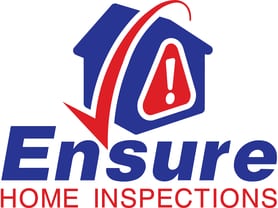Air-Conditioning Inspection Included with Home Inspection San Antonio
Does a Home Inspector Look at the Air-Conditioning System?
Absolutely, the heating system, the cooling system, and the duct work (for homes with central A/C) are all mandatory for a licensed home inspector in Texas to inspect. You will find in your report any deficiencies observed with these systems, as well as their operational status.
Important to note that your inspector is most likely NOT an HVAC professional though. What this means is that, while the inspector’s report will detail anything that stands out as an immediate problem, we don’t actually work on these things, and our evaluation of your system is not going to be as accurate as one performed by a licensed HVAC contractor. If we find an issue, we’re going to recommend that you call one of these guys.
What Parts of the Air-Conditioning System does a Home Inspector Inspect?
A brief overview of what we observe, operate, test and document during the course of the inspection:
The Heating System
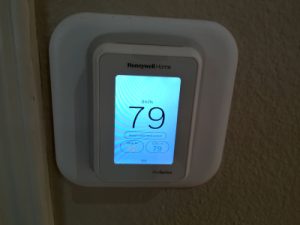
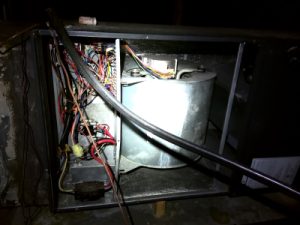
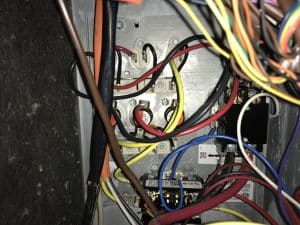
- What kind of heating system is it? (gas furnace, electric heat coil, heat pump)
- What is the power source? (natural gas, propane, electiricty)
- Does the primary heat system operate?
- Does the secondary heat system operate? (typical on heat pump systems, known as the auxiliary or emergency heating system)
- Does the gas supply have the required components/Is it up to code? What about the electrical supply?
- When we observe the burners in operation, do they all fire? Is there any “flame out” or scorch marks? Do the flames “dance” or move?
- When observing the heat coils, do they all have continuity?
- Is the gas flue vent up to code? Is there enough combustion air for the furnace?
The Cooling System
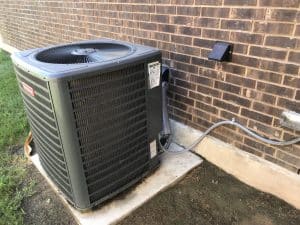
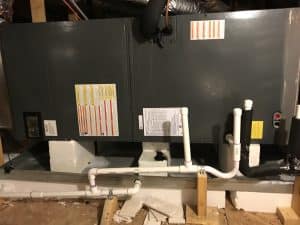
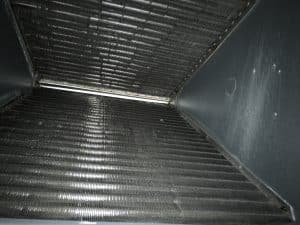
- What kind of cooling system does this home have? (central, evaporative, ductless, window/wall units, NONE)
- What condition is the exterior condenser unit in? Covered in dirt/debris? Free from obstructions around it? Out of level? Raised above the ground and on a pad?
- What make is the system? Are there multiple components from different manufacturers? What is the approximate age of the system? What is the size or tonnage of the system? What refrigerant does the system use?
- Is there an electrical disconnect present?
- Is the circuit breaker serving the cooling system appropriately sized (very important on older homes!)
- Are the refrigerant lines insulated? Which refrigerant line is insulated? Is the correct line insulated in the attic? (where condensation can drip onto the insulation and drywall above)
- What condition is the evaporator coil in? Do we have reasonable access to look at the evaporator coil? Is it dirty and in need of a cleaning?
- Are there stains or deterioration on the platform the air-handler is sitting on? (indicating a prior leak at the air-handler, a sign of neglect)
- The condensate drains: How many are there? Are they insulated? is there a safety switch if there is only one? Do they drain to the exterior or to sewer? Is there a condensate drain pump?
- Is there an auxiliary drain pan in case of a condensate drain clog? Does is drain to the exterior of the building or the sewer? Does the auxiliary drain pan have a float shutoff?
- Is the system operating?
- How cold is the air coming out of registers? How cold is the air going into the return? What is the difference? Is there a large difference in temperature between registers?
The Ducts and Ductwork
(This one is much shorter without the purchase of a Thermal Imaging Inspection, because a typical home inspection does not include inspecting all of the ductwork for air leaks, which is not practical without a dedicated thermal imaging session)
- Is the ductwork delivering air at similar temperatures?
- Where are the air-filters? How many? What condition are they in?
As you can see, the HVAC or air-conditioning inspection that comes with your standard home inspection will give you a pretty good idea of the condition of your system.
210.276.1614
Hours of Operation
| Mon - Sat | 8:00AM - 8:00PM |
| Sun | 10:00AM - 4:00PM |
Professional Home Inspector Kyle D. Scott
TREC # 23813 - TDA # 819063
Ensure Home Inspection San Antonio TX provides thorough inspections, detailed reports, and personalized consultations at affordable prices in San Antonio & surrounding areas. Home Inspector San Antonio providing WDI/Termite Inspections, Thermal Imaging, Pool / Spa Inspections, Foundation Elevation Survey and more!
Home Inspection Service Areas:
San Antonio, New Braunfels, Boerne, Seguin, Schertz, Cibolo, Selma, Live Oak, Universal City, Helotes, Spring Branch, Converse, Kirby, Leon Valley, Alamo Heights
Please review our Property Inspection Agreements before booking.
Copyright © 2019 - 2024 Ensure Home Inspections. All Rights Reserved. Accessibility Statement | Privacy Policy | Terms of Use | Disclaimer | TREC Consumer Protection Notice
